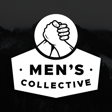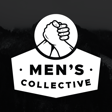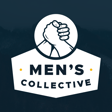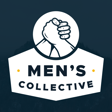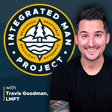
Let's Get MENTAL: World's 1st Men's Mental Health App (feat. Anson Whitmer, Ph.D.)
In this episode of The Therapy4Dads Podcast, we welcome guest Anson Whitmer, Ph.D. The episode dives into the challenges of reaching male audiences in the mental health space, with many apps and services predominantly targeting women. Anson shares his organization's approach, including daily routines and short activities aimed at shifting mindset and providing levity. They discuss the impact of these tools on mental health and motivation. They explore the concept of intentionally stressing oneself with cold water to rewire the brain's response to stress. During the conversation, Travis and Anson also address the high rate of men taking their own lives and the need for better support and education in addressing mental health. They discuss the limitations of traditional therapy and the importance of exploring different approaches and tools. They touch on the cultural narrative around trauma and the need to broaden the conversation to include a wider range of mental health practices. The conversation also explores the importance of paying attention to one's nervous system and developing a toolkit of techniques to effectively respond to stress. Travis and Anson delve into the influence of upbringing on seeking help, the benefits of lifestyle changes such as exercise, and the need for practical application of research in mental health conversations. Overall, this informative and engaging episode offers insights and practical tools for improving mental resilience and taking proactive steps toward better mental health. Whether you're a dad or not, this conversation is valuable for anyone seeking to level up their mental well-being and lead a more meaningful life.
About Anson Whitmer, Ph.D.
Anson is a driven individual whose personal experiences have shaped his career in neuroscience. A tragedy struck when his uncle, who had been living with his family during a difficult period, took his own life. This event left a deep impact on Anson and propelled him to pursue a PhD in neuroscience. His goal was to comprehend why individuals like his uncle struggled to overcome their troubled childhoods, leading to depression and ultimately suicide. Anson's quest for knowledge brought him to Stanford University, where he undertook postdoctoral research alongside a renowned clinical psychologist specializing in mood disorders such as depression and anxiety. Unfortunately, another devastating blow came when Anson's cousin from the other side of the family also took his own life. Anson realized later that his cousin had reached out to him for help, but he had been unable to respond in time. These personal experiences continue to fuel Anson's determination to understand and address the complex factors influencing mental health.
WATCH ON YOUTUBE:
SUPPORT THE SHOW:
CLICK HERE: BuyMeACoffee/Therapy4Dads
JOIN the MAILING LIST & GET INVOLVED!
Connect and Support Anson:
WEB: https://www.getmental.com/
Connect and Support Travis:
YouTube: Travis Goodman
Instagram: @Therapy4Dads
Check out the Website: Therapy4Dads.com
